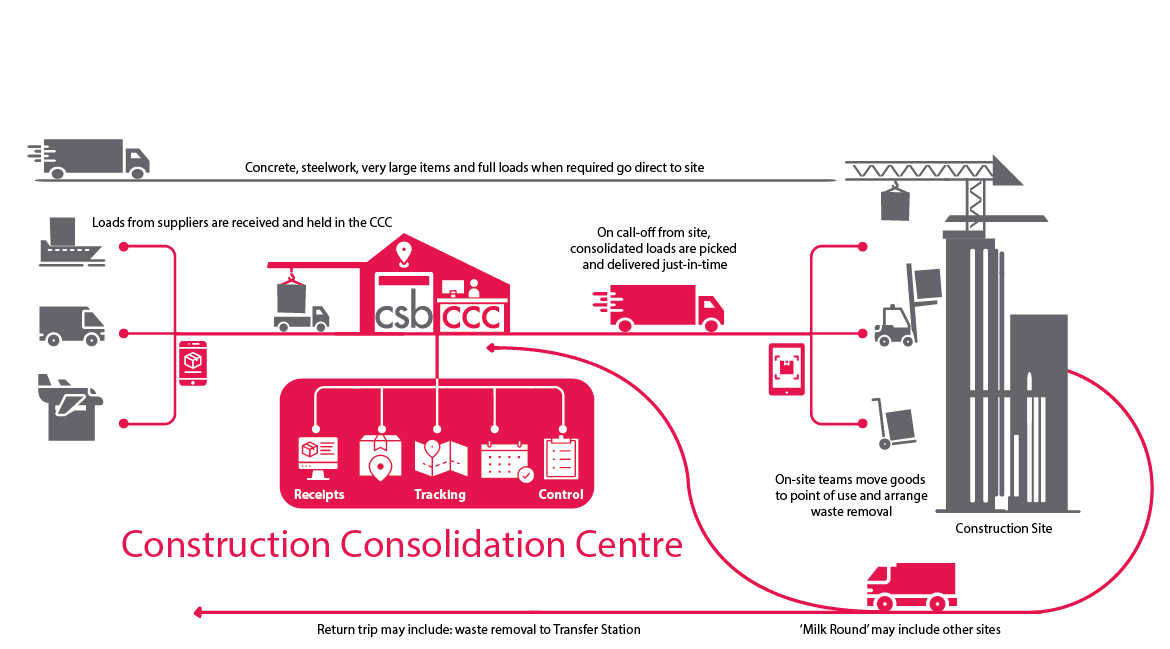As London rebounds from the pandemic, construction is poised to take off. But does more building inevitably mean more construction traffic?
By Matt Barker *
Until now, many developers and main contractors have been pushing responsibility for logistics onto sub-contractors. I hope that will change, and that developers and contractors will think differently about what we all do post pandemic.
Just as the environment and sustainability have become mainstream with standards such as BREEAM raising everyone’s game, I hope CLPs will be a force for good alongside public-private initiatives such as CLOCS, the national standard that requires all stakeholders in construction to take responsibility for health and safety beyond the hoardings.
I’m proud to have been involved in another public-private initiative, the Construction Logistics Improvement Group (CLIG) which CSB sponsors alongside other providers, TfL, HS2 and the Chartered Institute of logistics and Transport.
https://constructionlogistics.org.uk/
Through these kinds of channels, we can educate the industry about the benefits of switching to smarter construction logistics.
Contractors will naturally want to avoid the reputational risk from fatalities or life-changing injuries involving their vehicles.
Sustainable developers will not want to be accused of greenwashing by promoting the environmental credentials of their projects while failing to adopt green logistics plans.
There are good commercial arguments for using CCCs too. Traffic congestion collectively costs businesses a fortune. Cutting vehicle trips naturally cuts costs, particularly in peak periods.
Reducing the number and frequency of deliveries and ensuring those deliveries are just right and just in time ought to make sense for any business concerned about efficient working practices.
Of course, faced with the requirements of a CLP, developers, contractors or sub-contractors may be tempted to obfuscate things, either because they prefer the status quo or because they fear that it may be expensive to comply.
Even as these concepts become established, there will still be a minority tempted to try to circumvent them.
That will become harder with requirements for CO2 reporting and Artificial Intelligence systems that make it easier for those monitoring a site to see what is happening. As project partners, we will be able to track all activity. Systems we now have in development will change reporting and can potentially flag up poor and good practice.
Making it happen
At CSB, we see our role as providing consultancy as well as service delivery, from foresight for strategic project planning through delivery of CCC services to reporting, backed with our technology and expertise. By showing that it works, we aim to encourage more projects to take up of the concept.
I know many others in construction, transport and government are as committed as we are to implementing effective construction logistics across London, so it is surely only a matter of time before it happens.
As London bounces back, technology and other factors will drive new ways of working. For the construction industry, better logistics will be an integral part of the new normal, and its success will be measured in lives saved, injuries averted, better air quality, reduced congestion and improved quality of life.
* About the Author: Matt Barker is Managing Director of CSB Logistics, a leading logistics provider in construction, engineering and FM projects.






